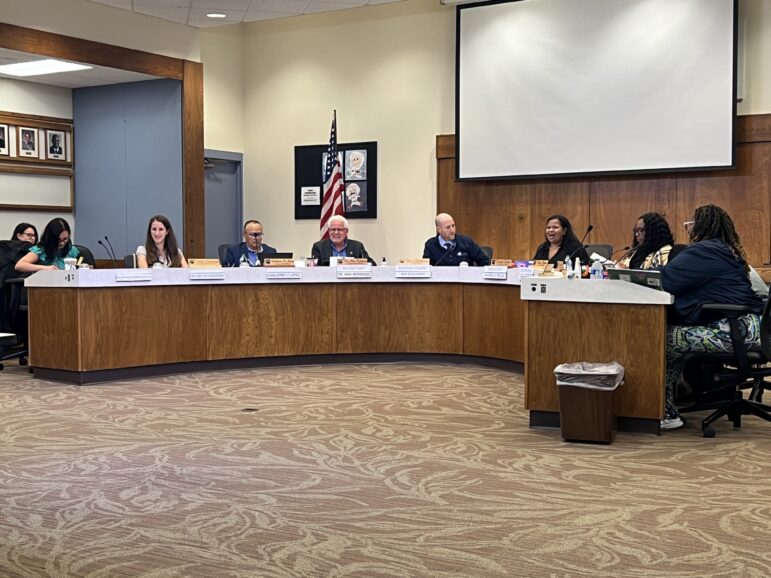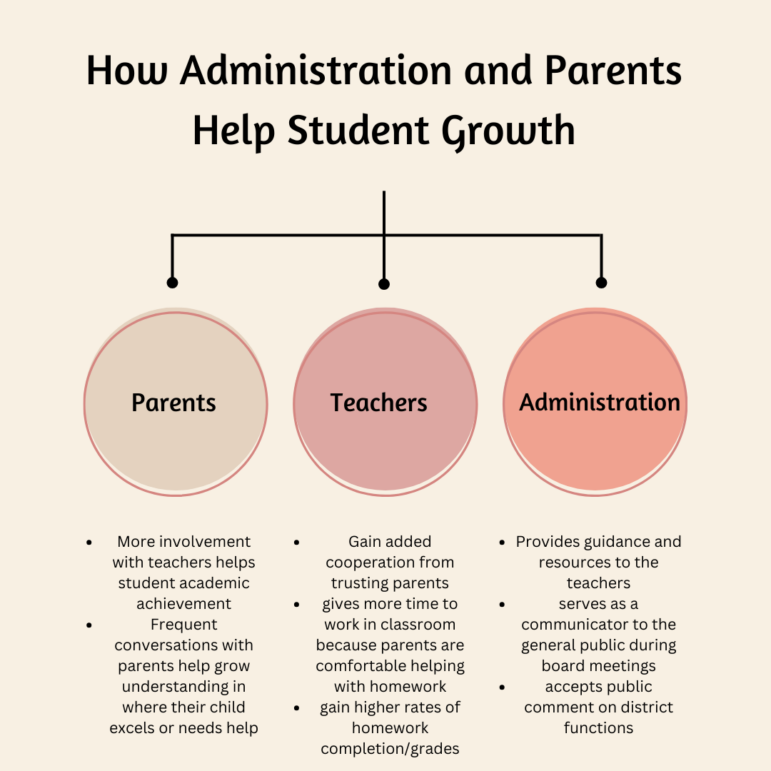
LANSING, Mich. The Lansing Public School District encapsulates 25 districts across the city and serves 10,000 students and their families. With that wide span, communication from all parties is necessary to help fuel students’ education. Lansing Superintendent Ben Shuldiner announced at the Oct. 5 board meeting that he wants to get the ball rolling on a parent advisory committee to include parent voices within the district.
“One of the things that makes a school district really magical is when you have everybody’s voice at the table,” Shuldiner said. “What I’ve always believed is that parents should have a voice directly to the superintendent so they can really be heard.” The superintendent hopes to gauge interest in monthly meetings that have a wide variety of representation. There is talk of trying to work out childcare and meals for the program so that it can be accommodating to all. “We would like to see a diversity of parents, different ages, different grades, different schools and that way we can get a real voice,” he said.
Shuldiner noted that the program is in the works and that he hopes to have it up and running before Thanksgiving. He and his office were unavailable for additional comment on the current progress of the creation of the board.
“I believe that it is very wise. It’s something you have to actually create it to have parent input,” Keturah Bouyer said. Bouyer is a parent of children going through the Lansing school district and part of a family who grew up receiving their education through the district and the board was deeply embedded in the community. “I’m from the days when parent involvement was assumed and communication was expected.” Bouyer recognizes the importance that other parents and the board have brought up but points out some faults in the system.
“I think we’re seeing the fruits of the lack of communication with parents,” Bouyer said. “You have behaviors that are out of control.” Bouyer discusses the changes she’s seen within the district from when she grew up and her parents and teachers were familiar with each other and the board. She feels that there is a separation between the community and the district nowadays.
“One of the biggest issues is the lack of follow-up with the Lansing school district with parents, and the unfortunate part is parents stopped believing what the district is saying they’re going to do,” Bouyer said. She isn’t asking for everything on the list to get done instantaneously, but she is frustrated that things as important as school renovations aren’t communicated.
Bouyer also discussed her conversation with her youngest daughter: “I don’t even want to go to Lansing schools anymore mom, they just don’t see, to be wanting to fix the issues.” Because of this, Bouyer hopes that attending school board meetings and encouraging them to involve the parents and interact more with the students will help rebuild an aspect of trust between the parents and the district to protect not only her kids but the rest of the district. “It’s very unfortunate because, in the middle of it, we are only failing our students,” she said when discussing her worries about the teachers leaving the district and students falling through the cracks.
“With a teacher leaving someone should be communicating to parents to make sure we are confident the school has a plan for what’s next for our kids,” Eric Walcott stated. His children attend Lewton Elementary, a Spanish immersion school, where several staff members and teachers retire or resign without much reason or communication given to the parents. A professor at Michigan State University, Walcott worries about the overuse of long-term substitutes and hiring non-Spanish speaking teachers into a school focused on Spanish immersion.
“It’s hard not to look at what’s going on at Lewton and not wonder if this district is committed to the success of this program,” Walcott said. “I’m hoping this can be the start of a conversation instead of just telling you all how hopeless I feel right now about the future of my kids’ education,” Walcott said.
He was one of several concerned parents and community members who spoke out about the concerns the communication issues have created amongst the district’s constituents when what they ask is simple.
“I’m hoping they’ll start having more transparency,” Bouyer said. “Then that will also help build trust. Parents will trust you with their children.” Bouyer offered a few pieces of advice to the district to help with communication beyond trust. She would like to see them open board meetings for conversation by responding to public comments when a concern is addressed.
“For me to come up as a parent and say I have a concern about what is going on and you don’t say anything, you don’t communicate even with some type of consideration to say thank you for voicing your concerns we will make sure that someone gets with you,” she said. She didn’t ask for immediate answers; she just wanted to be shown that her concerns were being heard by the district that her family had supported and called home for years.
“I’m really trying to uplift the district. I’m not trying to bash, but just like our history, we can’t just talk about the good,” Bouyer said. “You have to talk about things that are not good so that way we know what not to do in the future.”
In the end, several parties are advocating for the students. A middle ground is hopefully in the works between the parents and the board to continue to strengthen the goals of the Lansing school district.
